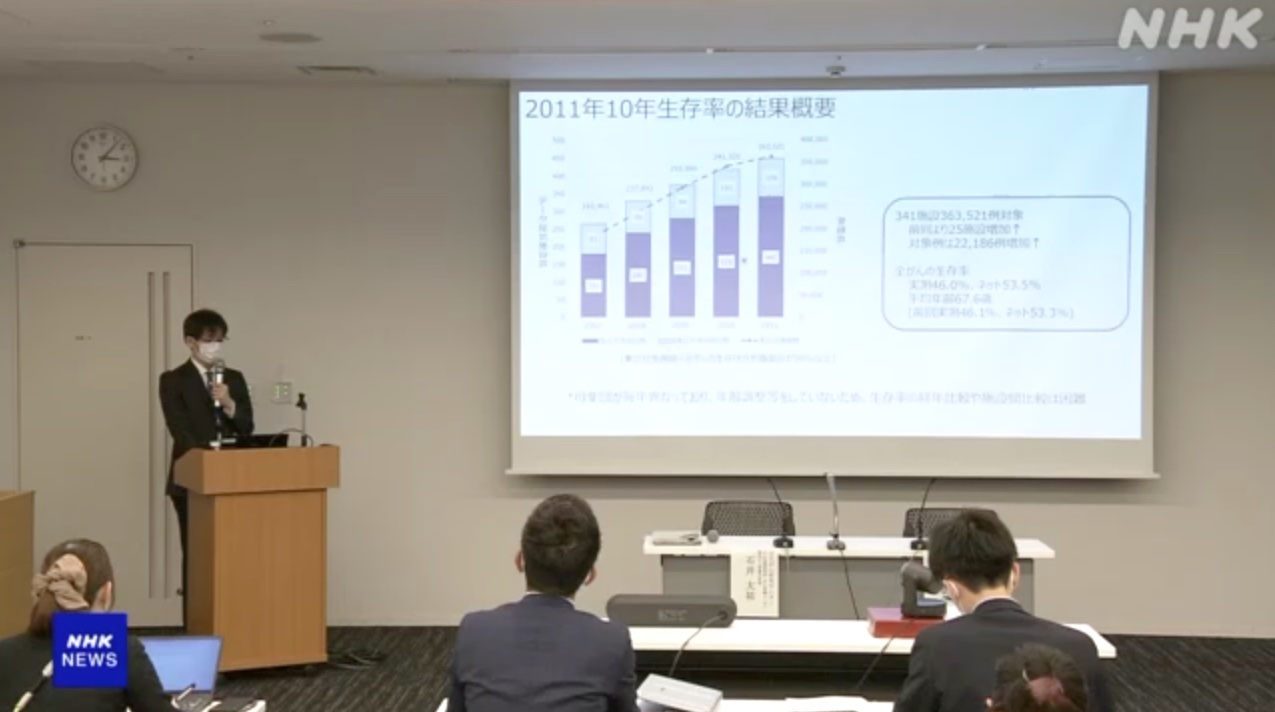TOKYO, Jan 25 (News On Japan) - The National Cancer Center Japan has published the first-ever compilation of 10-year survival rates for pediatric and adolescent and young adult (AYA) patients, aged from late teens to their 30s, based on data from individuals diagnosed with cancer at cancer base hospitals nationwide.

The center analyzed data from over 360,000 people diagnosed with cancer in 2011 at cancer base hospitals across the country.
For the first time, the center calculated the 10-year survival rates from the start of treatment for patients aged 0 to 14 years and those aged 15 to 39 years, known as the AYA generation. Using internationally recognized methods to calculate 10-year survival rates, the results for pediatric cancers were as follows: lymphoma at 91.5%, leukemia at 86.6%, and brain tumors at 71.7%. For cancers in the AYA generation, the rates were cervical and uterine cancers at 87.7%, breast cancer at 84.0%, and brain and spinal tumors at 78.2%.
When comparing the 5-year and 10-year survival rates, there was little decrease in survival rates for pediatric cancers, whereas for the AYA generation, the rates varied by type of cancer, with breast cancer, for example, showing a drop of more than 6 points after 10 years. The 10-year survival rate for all ages, including adults, was 53.5%, which is almost the same as the results published last year.
Dr. Taiyu Ishii of the National Cancer Center Japan stated, "Until now, data on survival rates for pediatric and AYA generation cancers has been limited. The prognosis after treatment for pediatric cancers has been supported by data, but for the AYA generation, the necessary support varies depending on the type of cancer. We hope that this data will be used as a foundation for considering support measures."
For more detailed results on the 10-year survival rates for different types of cancer, including by stage and age group, please visit the "Cancer Information Service" website operated by the National Cancer Center Japan.
Source: NHK


 by
by 











